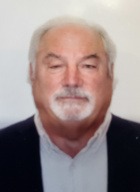Maersk Continues Investments in Fleet Decarbonization

The Danish A.P. Moller & Maersk, the second largest container shipping company in the world, has set a goal to reach zero-emission container shipping by 2040. The Maersk ambitious objective is much advanced compared to the global shipping industry objective to meet net-zero carbon emissions by 2050 to fight against 3% of the global greenhouse emission that they are responsible for.
The program initiated in 2021 aims to renew the fleet of 707 container ships, 304 owned and 403 long-time-chartered, with dual-fuel vessels and propulsion systems. Contracts with different partners and suppliers are in the process of being signed. The giant has chosen to combine methanol and liquified gas bio-LNG for the propulsion systems of its renewed green fleet. The exact split of propulsion technologies will be determined over time considering the latest regulatory requirements and green fuels supply.






